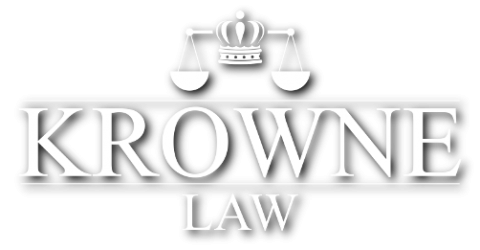
One of the most common occurrences in the startup world is to obtain “friends and family” funding. This happens organically—people do it more or less automatically, without considering laws or regulations. While neglecting to even consider legal compliance is far from optimal, it isn’t surprising, as startups are almost by their inherent nature efforts that arise informally, from the grassroots.
Unfortunately, United States securities laws are not well-tailored to match this grassroots reality. Succinctly put, there is no “friends and family” securities law exemption of general ambit. This implies that the presumption (to give legal compliance its due and avoid unnecessary liability later) must be that every non-loan business financing transaction might be (and probably is) a regulated securities transaction, implying at least some degree of affirmative legal compliance.
At the federal level, the Securities Act (upon which the SEC is founded) clearly has no such exemption. There are popular exemptions to registration of course—such as Regulation D, Rule 506(c), for private accredited investors, or Regulation CrowdFunding, which is open to non-accredited (small-scale) investors, subject to being offered through a regulated funding portal, prospectus compliance, and other restrictions—but the exemptions all involve meaningful compliance, and typically, various material restrictions which might be (and probably are) limiting to the types of financing performed in “friends and family” arrangements.
Federal securities laws and the SEC come into play when there is any interstate aspect to a security-based financing. If you are only raising friends and family funds from people in your state (including the requirement that any corporate entity involved be in the same state), great—you may be beyond the purview of federal securities laws (but check with legal counsel to be sure)!
But if even one investor in a group is in a different state, or, the founder(s) and all investors are in the same state (say, New York), but the startup company entity was formed in another state (say, Delaware), you’re within the scope of the federal securities laws and need to fulsomely consider compliance with them. This would mean that you almost certainly have no access to anything even remotely like a “friends and family exemption” at the most authoritative level of relevant regulation.
(The Securities Act does include a broad and vague exemption, Section 4(a)(2), generally speaking, which can conceivably be applied to interstate “friends and family”-type scenarios. However, the burden of proof of legitimacy of applying this exemption in a particular instance rests entirely on the securities issuer, with no “safe harbors,” i.e., provisions to guarantee legality if you follow certain steps, nor any meaningful guidance or precedent as to what might be considered “safe.” Thus, it is almost never used in this type of situation. Also, it doesn’t even begin to exempt you from state-level securities law compliance, covering every state in which you have an investor, plus each state from which you make the offer and in which the issuer company is formed.)
On the other hand, if you’re confirmed to be exclusively with the jurisdiction of a single U.S. state or territory for securities law purposes, there might be an applicable local exemption that matches your friends and family scenario—but this can only be determined with reference to your specific state or territory’s securities law, as applied to your precise situation. Luckily, most states do have exemptions that cover a large swathe of typical “friends and family” transactions (often called “limited offering exemptions”, or similar), requiring minimal to moderate affirmative compliance steps. But, while there are some common tendencies (i.e., many states have modeled their securities laws off one of the Uniform Securities Act editions promulgated by the National Conference of Commissioners on Uniform State Laws), one can’t assume that any two states are exactly alike (even if both have “adopted” the same Uniform Securities Act edition!).
Thus, even if you’re comfortably within a single state’s securities law jurisdiction, you can’t assume that you can safely proceed with your original plans without performing, at a minimum, a “clearance” check of state securities law (also called “Blue Sky Law”).
Finally, even if there is a good-fit federal exemption, such never completely precludes state securities laws, which may (at a minimum) require notice filings and other ancillary compliance, even when substantively supervened by the federal Securities Act. Thus, for better or worse, a state “Blue Sky Law” check is always needed when you’re primarily under federal securities jurisdiction, and even when operating under a Securities Act exemption!
Failing to heed the above could result in state or federal law compliance violations, which could form the basis of state or federal enforcement actions, and/or civil lawsuits from disgruntled investors (and despite, initial “good vibes” and excitement, yes, disgruntled investors are common in the startup space—even if they are among friends and family!). Any of the foregoing could result in rescissions, disgorgements, and/or fines which (on top of legal defense fees and damage to your reputation) could easily render the original investment transaction absolutely not economically worth it in the end.
We hope this article has made clear that “friends and family” startup investments do not represent any sort of “free pass” from securities compliance in the United States, and has encouraged you to make sure you are compliant.
Please reach out and let us know if you think we may be able to assist with your planned (or past) “friends and family” financing—even if it is just to (hopefully) gain comfort!

